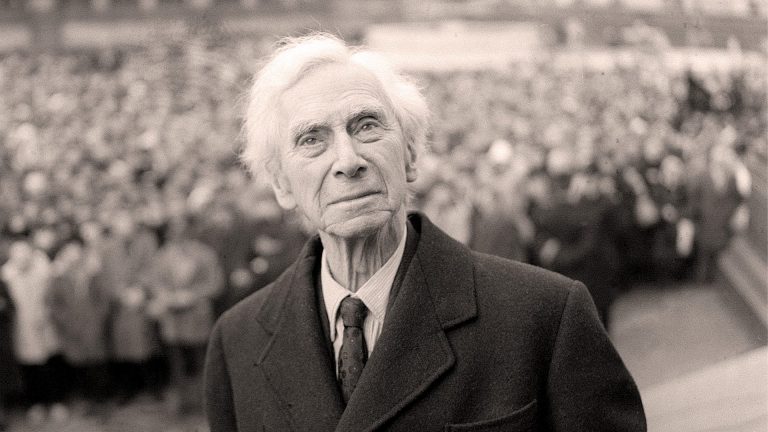The Fifth Step
(Soho Place Theatre, London, until July 26)
From the opening needle drop of Johnny Cash’s I’m Just an Old Lump of Coal, David Ireland’s succinct, powerful play has the audience guessing. “I think I might be an incel,” declares Luka (Jack Lowden) to James (Martin Freeman) – and so commences an hour and half of whip-smart dialogue.
Luka is an alcoholic in the early stages of recovery, jittery and unfocused, while the older man has many years of sobriety under his belt. After some back-and-forth about the nature of Alcoholics Anonymous, James agrees to be his sponsor, guiding him through the programme’s 12 steps.
There have been many memorable portrayals of alcoholism and its price: Billy Wilder’s The Lost Weekend (1945), Blake Edwards’s Days of Wine and Roses (1962) and Mike Figgis’s Leaving Las Vegas (1995). Ireland, who gave up drinking more than 20 years ago, certainly addresses addiction and AA (which did not work for him) in the exchanges between Luka and James. The play takes its title from the programme’s fifth step, in which alcoholics admit “to God, to oneself, and to another human being the exact nature of our wrongs”.
But Finn den Hertog’s production, which received its premiere at the Edinburgh International Festival last year, can just as easily be seen as a broader exploration of contemporary masculinity, belief and deceit. James and Luka share a resentment of their respective fathers. The younger man struggles with porn addiction; the older also has sexual issues in his past.
As Luka gains confidence and spiritual strength – his awakening involves an apparently hallucinatory vision of a movie star in a gym – the power dynamics shift fast. Affection vies with treachery, faith with cynicism. There is plenty of banter, and lines are recited from Scorsese’s Raging Bull (1980) alongside consideration of Buddha, the Bible and Spotify’s algorithms. In the hands of performers as accomplished as Freeman and Lowden, the nuances of this evolution are captivating.
In an interview with the Guardian last August, Ireland said: “I’ve been trying to be Quentin Tarantino my whole career and now I want to be CS Lewis!” The Fifth Step certainly wrestles with profundity. But it is also supremely compassionate and funny. Go see.
BOOK
Horace: Poet on a Volcano by Peter Stothard
(Yale University Press)
The most obvious bequest to modernity of the poet Quintus Horatius Flaccus (65-8 BCE) is aphoristic: in medias res (“begin in the middle of the action”); carpe diem (“seize the day”); sapere aude (“dare to know”). For those still lucky enough to be offered the classics at school, there are his Odes and Satires. But little attention is now paid to his life and times.
Step forward Peter Stothard who, after a quarter century of distinction as editor of The Times and the Times Literary Supplement, has written a series of excellent books about the ancient world. In this biography, he nestles Horace’s artistry squarely in the politics, society and culture of the Augustan age, describing him, intriguingly, as a “a war poet” who “became a laureate poet in an autocratic empire”.
The son of a freed slave, Horace travelled from Venusia in southern Italy to Athens, where he met Brutus, plotting his next move after the assassination of Julius Caesar. Marching with the assassins’ army, he briefly shared command of a legion at the decisive battle of Philippi (42 BCE) at which Brutus and Cassius were defeated by Mark Antony and Octavian (later Augustus).
Horace survived and rose in Rome as a poet of pithy ferocity and wit, initially describing the fetid squalor of the Subura quarter. He befriended Vergil, calling him “one half of my soul” – though he had no desire to emulate the epic form of the Aeneid.
After Vergil’s death, it fell to Horace to write a song for the all-important Ludi Saeculares or Centenary Games, mounted by Augustus in 17 BCE. As Stothard reflects in one of his best chapters: “This was the most important public event of his life, of anyone’s life… Nothing could be allowed to go wrong”.
As in his previous books, the author brings the classical world to life vividly and with wit, stretching out a scholarly hand to those with little knowledge of antiquity. Horace wrote that, in his poetry, “I have built a monument more lasting than bronze.” He now has a modern biographer worthy of his legacy.
STREAMING
Garbo: Where Did You Go?
(Sky Arts/Now)
“What a waste of the best years of my life – always alone – it was so stupid not being able to partake more,” wrote Greta Garbo to Cecil Beaton in 1948. “Now I’m just a gypsy, living a life apart, but I know my ways and I must not see people.”
The reflex of cultural historians has long been to categorise the Swedish film star alongside JD Salinger, Thomas Pynchon and Bobby Fischer as a compulsive recluse. But the truth, as Lorna Tucker’s absorbing documentary makes clear, was more nuanced.
Born Greta Lovisa Gustafsson in the slums of Stockholm in 1905, she was scouted at the department store where she worked and cast in a promotional film. After she played a small part in Erik A Petschler’s Peter the Tramp (1922) and then a leading role in Mauritz Stiller’s The Saga of Gösta Berling (1924) – it was Stiller who renamed her “Garbo” – Hollywood came calling.
Her rise to global celebrity was sensational, thanks to movies such as Fred Niblo’s The Temptress, Clarence Brown’s Flesh and the Devil (both 1926), and A Woman of Affairs (1928, also directed by Brown). She formed an electrifying on- and off-screen partnership with John Gilbert, the model for Brad Pitt’s character in Damien Chazelle’s Babylon (2018) – though, after years of heavy drinking he was to die in 1936, aged only 38.
In 1930, Garbo was receiving 3,000 letters a day – considerably more than the 800 sent to President Hoover. Even more remarkable was the success with which, unlike so many of her contemporaries, she made the transition from silent movies to the era of sound. Her first line in a talkie, an adaptation of Eugene O’Neill’s Anna Christie (1930), was a sensation in itself: “Gimme a whiskey, ginger ale on the side, and don’t be stingy, baby!”
Though she was never allowed to live down her famous demand in Edmund Goulding’s Grand Hotel (1932) – “I want to be alone!” – she fought hard against stereotype and, in Rouben Mamoulian’s Queen Christina (1933) embraced androgyny and hinted at bisexuality.
Though she hated the attentions of what were not yet called the paparazzi, she was even more dismayed by the rise in censorship and moral condemnation of art. Her performance in George Cukor’s Two-Faced Woman (1941) – a movie attacked by the National Legion of Decency and church leaders – was to be her last. She was only 36.
That she cordoned off her private life in New York is a matter of record. But what Tucker shows is that privacy is not the same as solitude. Her friendships with figures such as Beaton, Charlie Chaplin, and John F Kennedy remained a rich source of pleasure; she travelled under the alias “Miss Harriet Brown”; and collected art, including three Renoirs.
She died in 1990 aged 84, almost half a century after she had turned her back on the movies. In the same year, Madonna released the single Vogue, the lyrics of which helped to entrench Garbo’s unique (and unwanted) iconic status.
STREAMING
Wick is Pain
(video on demand)
I have often thought that the masterly John Wick action movies are God’s way of apologising for Sally Rooney. While the literary world swooned over drearily prim middle-class people mumbling about their feelings in her novels, Keanu Reeves and his former stunt coordinator, Chad Stahelski, turned a wild idea for a “gun fu” revenge movie into a thrilling billion-dollar franchise that has more or less reinvented the genre.
Though Jeffrey Doe’s documentary is doubtless intended to generate hype for next month’s spin-off movie, Ballerina, starring Ana de Armas, it is enjoyable in its own right as a case study in cinematic world-building and the colossal odds that confront any first-time film-maker – even with a star of Reeves’s cachet on board.
The first Wick (2014), in which the assassin comes out of retirement after (against all Hollywood rules) his dog is killed by the bad guys, was co-directed by Stahelski’s friend and fellow stunt expert, David Leitch. By their own admission, they had no idea how to direct a feature film and – had the actor Eva Longoria not underwritten the movie to the tune of $6 million at the very last minute – would have had to ditch the whole enterprise.
Initially, none of the studios wanted to distribute the film either and it was only when Lionsgate decided to buy the US as well as the foreign rights that the movie was launched, with huge success. In the three subsequent sequels (2017, 2019 and 2023) the action became more ambitious, the locations more exotic and the co-stars more famous (Halle Berry, Anjelica Huston, Bill Skarsgård).
A constant presence at the neutral-ground Continental Hotel in New York is its manager Winston (Ian McShane), aided by his concierge Charon (the late Lance Reddick). The mythology of the series and its High Table of killers became ever more elaborate. As for Reeves, who is now 60, he was pushed to the very limit, and beyond (hence, the film’s title).
Why has it worked? “We love wuxia [fantastical, chivalric kung fu] films,” explains Stahelski, “we love chambara [samurai] films, we love Westerns, we love John Ford, we love Sergio Leone. We love Bernardo Bertolucci, we love Tarkovsky, we love Wong Kar-Wai, we love Zhang Yimou, you know, Akira Kurosawa, we love Steven Spielberg…bWell, fuck it. We’re just gonna combine everything we love and build our own franchise.” Thus are the greatest popcorn movies made.












